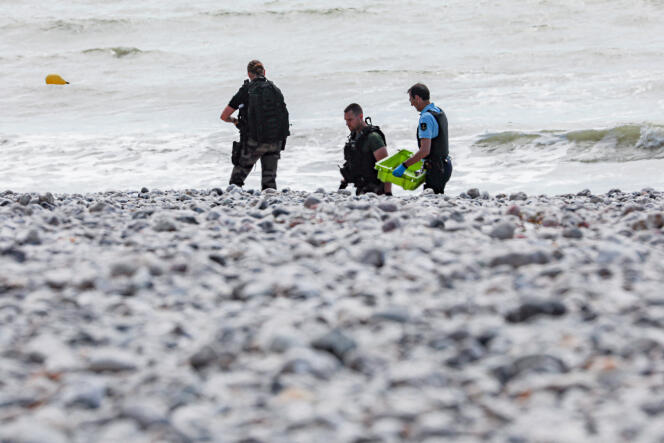


Al Pacino's washed-out face emerged from the foamy waves, a few shells clinging to it. The picture of the American actor in his role as a drug trafficker in Scarface was immersed for several weeks in the waters of the Atlantic, printed on 25 bales of cocaine with an estimated market value of €1.3 million before washing up on a beach on the Ile d'Oléron on November 15, 2023.
Such a delivery method is no longer uncommon: It embodies a strategy used by criminal groups that has become commonplace on the French coast. Known as a "drop-off," this technique consists of dropping cocaine from South America into the sea to be picked up by accomplices in a second boat before being sold on land.
In 2023, a total of 36 bales of cocaine floating in the sea were identified by the Anti-Drug Office. This was the first time such a census was carried out, as these situations of bales getting stranded have succeeded each other at an unprecedented rate, mostly from the tip of Brittany to the Pas-de-Calais. One of them got stuck on the ladder of a wind turbine off Fécamp, Normandy, in November 2023; another required closing the beach of Saint-Jouin-Bruneval beach, also in Normandy, to summer visitors in early July. Between February and March 2023, 29 sports bags attached to lifejackets were found along the Channel coast, containing a total of over 1.2 tons of drugs.
Over the past few days, the surf has turned up other surprise packages, like the one at Soulac-sur-Mer, near Bordeaux, on January 13 – a package too altered by its sea voyage to be sold.
As Jérôme Sentenac, head of strategy at the French Anti-Drug Office, pointed out: "These episodes illustrate criminal groups' adaptation strategy to ensure the transmission of cocaine shipments on the high seas while avoiding the most heavily guarded major ports, where criminal organizations had until now favored transit via container ships. This interconnection extends to the whole of Europe."
Cocaine drop-offs have also recently been increasing in the Irish Sea, in the Strait of Gibraltar and off the coast of Sicily. Even the Australian police have noticed the use of this practice off the coast in a country where a gram of coke is among the most expensive in the world.
But if this kind of cargo reaches the coast, it means that the transfer at sea must have been a failure. This can result from bad weather, poor coordination, or from traffickers' panicked reaction to the risk of being spotted.
These alternative routes have been compiled in a police note, which is still being finalized but that Le Monde was able to consult, detailing a wide range of techniques. The first is the classic drop-off, where bundles equipped with GPS beacons are dropped at sea and then recovered by smaller boats driven by accomplices. There's also the so-called "dead drop," where drugs are attached to a fixed anchor point, and the transshipment from a "mother boat" to a "daughter boat." The merchandise can be hidden without the knowledge of the crew of the first ship. In some cases, criminal accomplices lock themselves in a container equipped with dry toilets and foodstuffs, coming out at an agreed geographical point to push the goods overboard.
You have 60% of this article left to read. The rest is for subscribers only.
